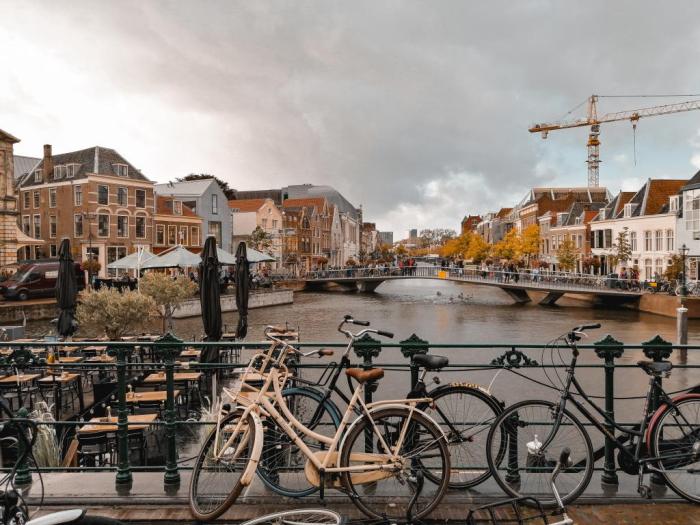
Details
Solution type
This case study is part of a project catalogue produced by ReUseHeat to inspire how to utilize excess heat from urban sources for heating and cooling purposes. The catalogue contains 25 existing or planned projects, 12 of which are Danish and 13 from other European countries.
Description
The project Warmtelevering Leidse Regio (WLR) involves transmitting industrial residual heat from the port of Rotterdam to the greater Leiden area. A project agreement was signed in November 2017, enabling a sustainable heating solution for the local community. Low-temperature return flow is used through a heat pump at a nearby local brewery.
Facts about the case |
|
| Heating source: High temperature transmission and low temperature return flow from industrial residual heat. District heating system: 43 km transmission pipeline delivers heating to the greater Leiden area and the nearby Heineken brewery. |
Potential: 13,000 households and 200 companies Period: Agreement signed November 2017. Organisation: Warmtebedrijf Rotterdam and Noun |
The WLR project is a commitment between the heating transportation company Warmtebedrifj Rotterdam and the energy company Noun. By supplying the greater Leiden area with industrial residual heating from the port of Rotterdam, approximately 13,000 households and 200 companies can potentially be supplied with sustainable heating. The project involves a major transmission line, where a 43 km pipeline ensures heat distribution from the port to the town and back again.
The high-temperature residual heat is transported from the port of Rotterdam via a pumping station powered by electricity. The heating is transported to heating centres in Leiden, where it is dispersed to the already existing district heating network. The return flow still holds a large energy potential, and it is harvested at the Heineken brewery. Here, the residual low-temperature heat from the return flow produces hot steam for brewing processes. This is done through an electrically powered heat pump. The cooled water is returned to the port of Rotterdam, where it again is heated by industrial residual heat in heat exchangers.
The heat pump at the brewery is a main part of fully utilizing the potential of excess heat from the port of Rotterdam. By extracting heat from the return flow, the temperature of the returning transmission pipeline is lowered, making room for more energy to be harnessed at the ports. Hereby, the overall energy efficiency of the system is optimized. The unique transmission system expands across multiple highways in an existing urban environment. Further, a buffer tank at the heating centre supplies the brewery, and hot water is used for packaging .
The transmission system results in immense CO2 - and energy savings, as great amounts of natural gas can be substituted with existing residual heating. Currently, a large amount of energy is lost to the ambient air from industries at the port of Rotterdam. By constructing a transmission system, the potential energy can be harvested. A heat alliance between the province Zuid-Holland, Havenbedrijf Rotterdam, Gasunie and Eneco en Warmtebedrijf Rotterdam is planning a larger regional heating system. The goal is to connect 500,000 households and multiple greenhouses in a large regional district heating network, potentially reaching CO2 savings of 1 million tonnes annually.
Leiden, Netherlands
The agreement signed in November 2017
IVL Swedish Environmental Research Institute
Names of stakeholders
External links:
- Warmtelevering Leidse Regio (WLR)
- Provincie Zuid-Holland
- Heineken
- Havenbedrijf Rotterdam
- Gasunie
- Eneco en Warmtebedrijf Rotterdam
- Handbook – 25 cases of urban waste heat recovery
Replicability |
Low |
Medium |
High |
|---|---|---|---|
| Authorizative easiness | x | ||
| Adaptability to different climate conditions | x | ||
| Technology easy-to-implement (No need of specific technical requirements) | x | ||
| Easy-to-implement (No need of specific technical requirements) | x | ||
| Easy-to-operate (No need of specific technical requirements) | x | ||
| Opportunity of integrating waste energy sources | x | ||
| CAPEX needed for the deployment of the solution | x |
